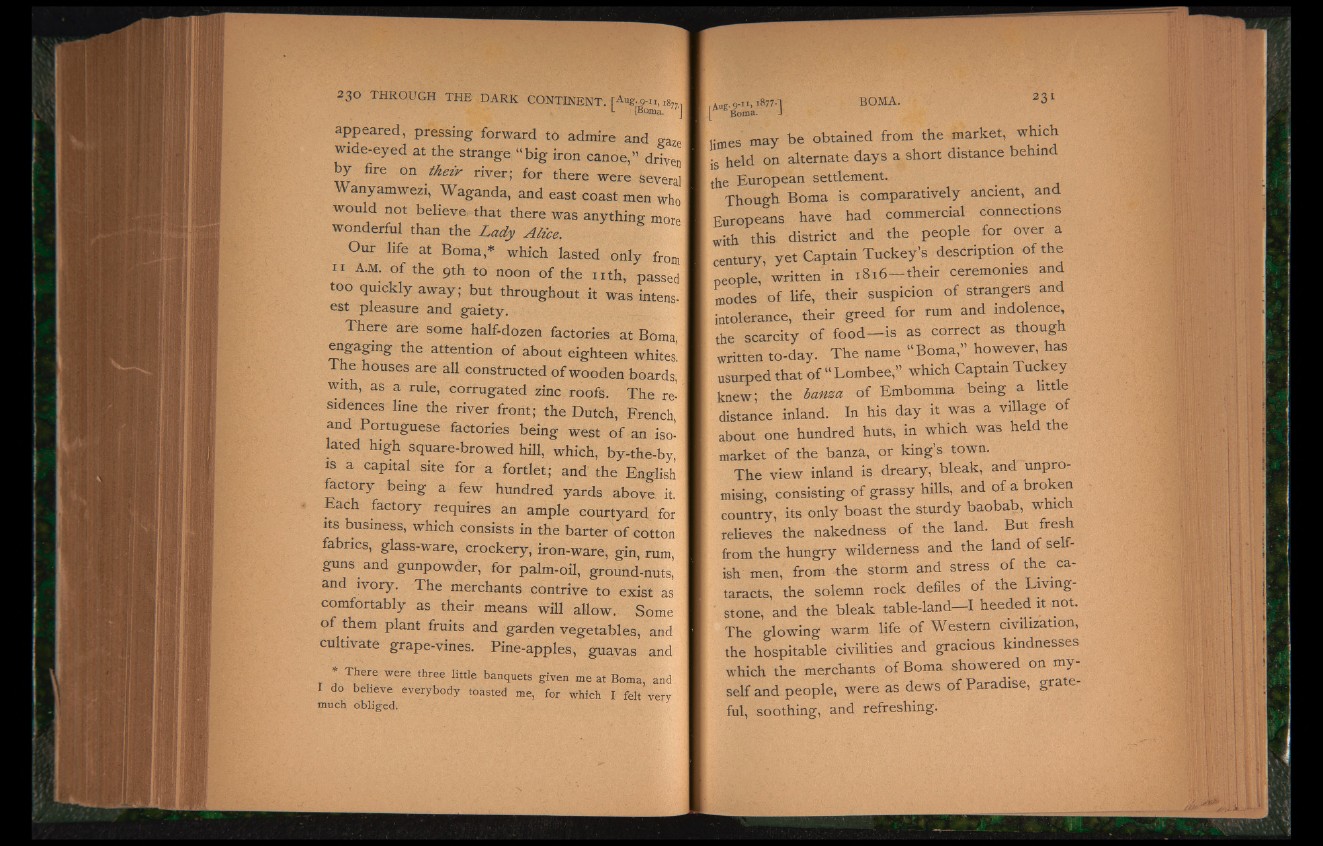
appeared, pressing forward to admire and g-az
wide-eyed at the strange “ big iron canoe,” driven
by fire on their river; for there were several
Wanyamwezi, Waganda, and east coast men who
would not believe, that there was anything more
wonderful than the Lady Alice.
Our life at Boma,* which lasted only from
11 A.M. of the 9th to noon of the nth, passed
too quickly away; but throughout it was intens-
e§t pleasure and gaiety.
There are some half-dozen factories at Boma
engaging the attention of about eighteen whites
The houses are all constructed of wooden boards,
with, as a rule, corrugated zinc roofs. The residences
line the river front; the Dutch, French
and Portuguese factories being west of an isolated
high square-browed hill, which, by-the-by,
is a capital site for a fortlet; and the English
factory being a few hundred yards above it.
Each factory requires an ample courtyard for
its business, which consists in the barter of cotton
fabrics, glass-ware, crockery, iron-ware, gin, rum,
guns and gunpowder, for palm-oil, ground-nutsJ
and ivory. The merchants contrive to exist as
comfortably as their means will allow. Some
of them plant fruits and garden vegetables, and
cultivate grape-vines. Pine-apples, guavas and
* There were three little banquets given meat Boma, and
I do believe everybody toasted me, for which I felt very
much obliged.
Aog-9-11 ' l877‘ Boma.
limes may be obtained from the market, which
is held on alternate days a short distance behind
the European settlement.
Though Boma is comparatively ancient, and
Europeans have had commercial connections
with this district and the people for over a
century, yet Captain Tuckey’s description of the
people, written in 18 16 - th e ir ceremonies and
modes of life, their suspicion of strangers and
intolerance, their greed for rum and indolence,
the scarcity of f o o d - i s as correct as though
written to-day. The name “Boma,” however has
usurped that of “ Lombee,” which Captain Tuc ey
knew; the banza of Embomma being a little
distance inland. In his day it was a village of
about one hundred huts, in which was held the
market of the banza, or king’s town.
The view inland is dreary, bleak, and unpromising,
consisting of grassy hills, and of a broken
country, its only boast the sturdy baobab, which
relieves the nakedness of the land. But re®
from the hungry wilderness and the land of seii-
ish men, from the storm and stress of the cataracts,
the solemn rock defiles of the Livingstone,
and the bleak table-land I heeded it not.
The glowing warm life of Western civilization,
the hospitable civilities and gracious kindnesses
which the merchants of Boma showered on myself
and people, were as dews of Paradise, grateful,
soothing, and refreshing.